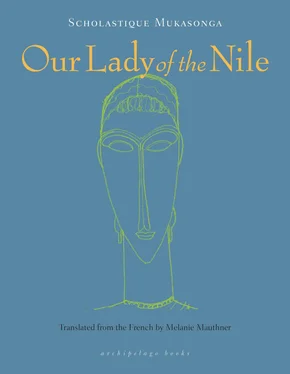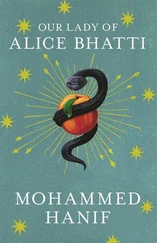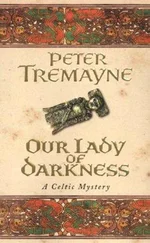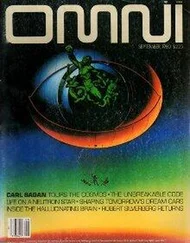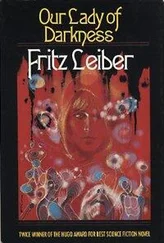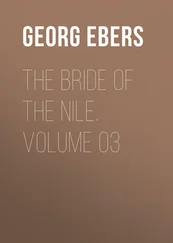He handed her a small calabash and a straw.
“You’re to drink this.”
“Why do you want me to drink that? What is it?”
“Don’t worry, it’s not poison, well, not yet. It’s igihango , and you must drink it. All abiru must drink it. Drink, it will protect you, but if you betray the secret, the igihango will turn into poison. Sickness and misfortune will befall you and your entire family. If you break the secret, the secret will break you.”
“I trust you, I’ve got no choice. Give me your calabash. I won’t break the secret.”
Virginia gulped, and a sour fiery liquid filled her mouth. She squeezed back her tears.
“Good, that’s very brave of you. Now, listen to me. I went to the swamp, the great endless swamp of Nyabarongo, on your behalf and for the Queen’s umuzimu . There’s no path; if you step into it and sink, you’ll be walking forever and never get out. But I know how to reach this little hut, not just any hut, even though it looks like a hunter’s shelter, it’s the House of the Drum. You can’t see the Drum when you enter the hut, for it’s buried, deep down in the earth beneath you. It’s Karinga, the Drum of the kings, the Drum of Rwanda, the Root of Rwanda: it holds all of Rwanda in its entrails. Have you ever heard Karinga roar? Now, when Karinga rumbled — for Karinga wasn’t beaten like any other drum, Karinga rumbled of its own accord — the whole of Rwanda heard it, they said that everything under the sun heard it, women suddenly stood still, leaning on their hoes, men’s hands froze above their beer jug, unable to plunge the straw in, the hunter pulling back the string of his bow couldn’t release his arrow, the shepherd playing his flute lost his breath, cows forgot to graze, and mothers to breastfeed their babies. When Karinga ceased rumbling, it was as if the country awoke from some great bewitchment. No one could say for how long Karinga had thundered. Karinga’s enemies pursued him and sought to burn him, so Karinga buried himself in the earth. His enemies looked for him but never found him. Perhaps Karinga will surge forth from the earth one day. Nobody knows when. But buried in the ground, he still watches over Rwanda, for no one has been able to expose the contents of the drum’s belly. Even I don’t know. Nobody has seen Karinga’s heart. It’s the secret of secrets.”
Rubanga’s voice trembled as he uttered the drum’s name. He stayed silent for a while.
“Well … now … listen carefully to what I’ve done for you and the Queen’s umuzimu … I lay down just above the spot where the Drum is buried, and in my dream, the Drum revealed to me what I must do for the Queen’s umuzimu . What you must do for the Queen’s umuzimu . You’ve attended the whites’ school, but you’re still a virgin. So I’ve carved this small milk pot for you out of flame-tree wood, a little milk pot, like for a child. The dead aren’t greedy, a few drops will satisfy them. And I’m giving you this leafy branch. It’s umurembe , a plant that soothes the dead because it has no thorns. Long ago, before the missionaries came, these leaves would be placed in the deceased’s hand. You’re to return to that white man with this pot and these leaves. You must fill the little pot with milk, milk from an inyambo cow, do you hear, not milk from any other cow. And the milker must be an intore , a strong young warrior. You’re to go up to the kigabiro surrounding the tomb. One of the trees is a flame tree, I saw it in my dream. You’re to dip the leaves in the milk and sprinkle the flame tree, saying: ‘Return without thorns, like the umurembe .’ When the pot’s empty, bury it at the foot of the tree. But take great care that the pot doesn’t touch the ground before that; otherwise, it will lose its power. Remember all I’ve said and tell no one.”
“You still playing goddess at that crazy Whitey’s place?” asked Virginia.
“Why not?” replied Veronica. “He dresses me up as an Egyptian, covers me with perfume and incense, photographs me, draws me, paints me. But he doesn’t touch me: I’m his statue, his doll, his goddess. I dance before She whom he painted in my likeness and sometimes I feel as if I, too, have been transported to another world.”
“I think you’ve been seized by old Fontenaille’s madness. You scare me. I don’t know where this is all going to lead you.”
“What’s there to lose? You and me, I often wonder what’s the point of us continuing to study in this high school where they train, as they say, the so-called female elite. We’ll never be a part of their elite. We get the best grades, not because we’re the most intelligent but because we just have to be the best, and we make believe our good grades will protect us, that thanks to them, we may still be a little hopeful about our future. But look at the others: for some of them at least, coming to class is purely a formality, it’s like they’d already got the diploma, it’s like they were already some minister’s wife, they go along to class like a bureaucrat goes along to his office, grades are secondary, that’s not what interests them. But you and me, what’s to become of us? A Tutsi diploma isn’t the same as a Hutu diploma. It’s not a real diploma. That diploma is your meal ticket. If it’s marked Tutsi on it, you’ll never find a job, not even working for the whites. That’s the quota for you.”
“I know all that, and I often tell myself I should have stayed and farmed on my hill. But my mother imagines the diploma will save everything, me and my family … So, you’re still going to see your Whitey.”
“Yes, of course, he sent those portraits he made of me off to Europe, says they went down very well, and the photos too, that he made some money off them, he says that I truly am his goddess, that I bring him good luck, that this money is for me, too, and that part of it will pay for my studies in Europe. And he even says that now I’m known in Europe, they’re expecting me. I might become a star, like in the movies. Fontenaille may be a crazy fool, but he’s a crazy fool who made his delusions a reality, and maybe he’ll make my dreams come true. Him, he lives in his dream. He’s hired young men who didn’t pass their national exam or who were kicked out of the core curriculum because of the quota. He wants them to live like the Tutsi of olden days. He’s even taken on a former courtier to teach them to dance. They’re his shepherds, his dancers, his intore , his Egyptian warriors. The boys accept it, he pays them well and makes these vague promises about finding them a school later on, I don’t know how. Meanwhile, he lectures them at length about their Egyptian roots. I’m afraid some will end up believing him. He no longer knows who he is, sometimes he’s a great Tutsi chief, sometimes a priest of Isis. He also told me some journalists would be coming from Europe to do a report about him and his temple. They’re even going to make a little movie. I’m going to act in their movie. I’ll be the goddess, the star. If only they could take me away with them!”
“You’re dreaming too. Fontenaille’s madness will get the better of you. Watch out for that. But I’d like to go to Fontenaille’s place on Sunday.”
“See, you too want to act out the white’s crazy notions. Come along, he can’t wait to see you. He’s always asking me where his Queen Candace is, if she’ll be coming back one day. He’ll be mad with joy to see you return and to dress you as Queen Candace. He showed me the outfit that awaits you, and you alone.”
“It’s not to dress up as Queen Candace that I want to go there, it’s for something that I can’t tell you about. I have to go on my own. Please, don’t be cross, I don’t want to take your place, I don’t want to play Queen Candace every Sunday, but I need to go there once by myself.”
Читать дальше
